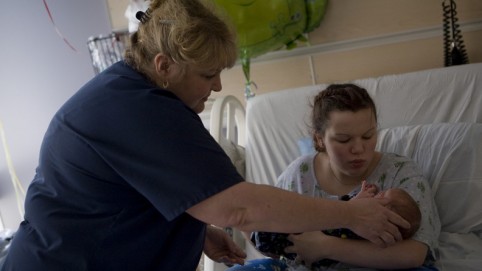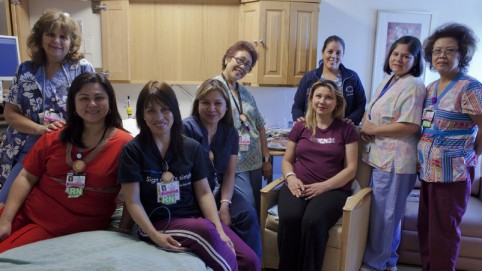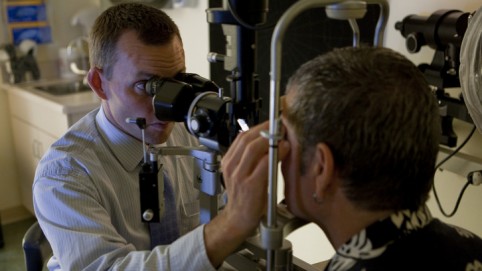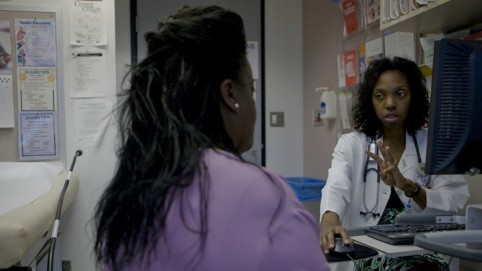Find a practice to try with your team

Be Quiet. Respect Nap Time
When this mother/baby unit instituted a regular nap time, moms got more rest and the success for breastfeeding increased.
- Nap times help reduce the number of requests for respite care.
- Created an afternoon nap time, and communicated to staff and family about this quiet period

Easing the Pain
The maternity team's laser-focus on pain management helps it keep service scores high. standardized pain medication schedules, communicated when next meds were scheduled, and reinforced the "no-pass" policy.
- Helping new moms manage pain is a key part of providing excellent service.
- Standardizing pain medication schedules

Improve Inpatient Med Deliveries
The pharmacy posted laminated cards of commonly used drugs, they made deliveries 15 minutes early, and color-coded bins of new meds to distinguish from discontinued meds.
- Reducing the number of overdue meds ensures proper care.
- Identifying potential pharmacy delays can improve service

Accurate Logs = Better Care
The histology team clarified their log sheets, discussed their goals and set deadlines, and double-checked the logs to ensure quality.
- Complying with the documentation process is necessary for quality outcomes.
- Clarifying log sheets can help improve accurate documentation

Avoid Specimen Handling Errors
Lab identified the process, created a process map with highlighted photos and standardized tasks, and placed laminated copies around the lab.
- Avoiding errors allows the patient to get the correct diagnosis sooner.
- Creating a process map helps staff to correctly follow the procedure

Make Low-Sodium Meals Tastier
Food services included Mrs. Dash seasoning packets with meals, wrote scripts to explain the idea, and informed patients about diet options.
- Providing patients with healthy and tasty food helps them heal
- A little packet of Mrs. Dash can go a long way to making low-sodium palatable

Encouraging Patients to Get Screenings
More patients pledged to get screeings after members of this team began a strategic outreach campaign.
- Early detection of cancer saves lives.
- Training and peer-to-peer coaching of staff

Share Your Schedules
Center shared scheduling data with other departments, respected their processes, and got everyone on the same page.
- Coordinating schedules prevents patients from getting turned away.
- Sharing scheduling data between departments improves patient care

Mistakes Cost Money
Admitting team increased training to ensure accuracy of data, created a reference tool for self-review, and conducted self-audits to catch mistakes.
- Hospitals need to file correct Medicare forms for proper reimbursement.
- Training and teamwork can improve the accuracy of Medicare forms

Personalize The Need for Screening
After identifying eligible members for colorectal screening, the team developed a personalized story for each patient, and created a follow-up process to contact them.
- Early detection is paramount to successful cancer treatment.
- Bringing the message to a personal level helps patients to understand

This Test Saves Lives
The internal medicine unit emphasized the value of taking the colorectal screening test, and identified at-risk patients whenever they come into the office.
- Ensuring the patients take the test and return it is critical to early screening.
- Labeling the test as life-saving can increase patient compliance

Print Less, Save More
Printing the short version of reports can provide greater service to patients.
- Shorter reports distill information down to the need-to-know.
- One-page summaries are better than multi-page reports for staff satisfaction
